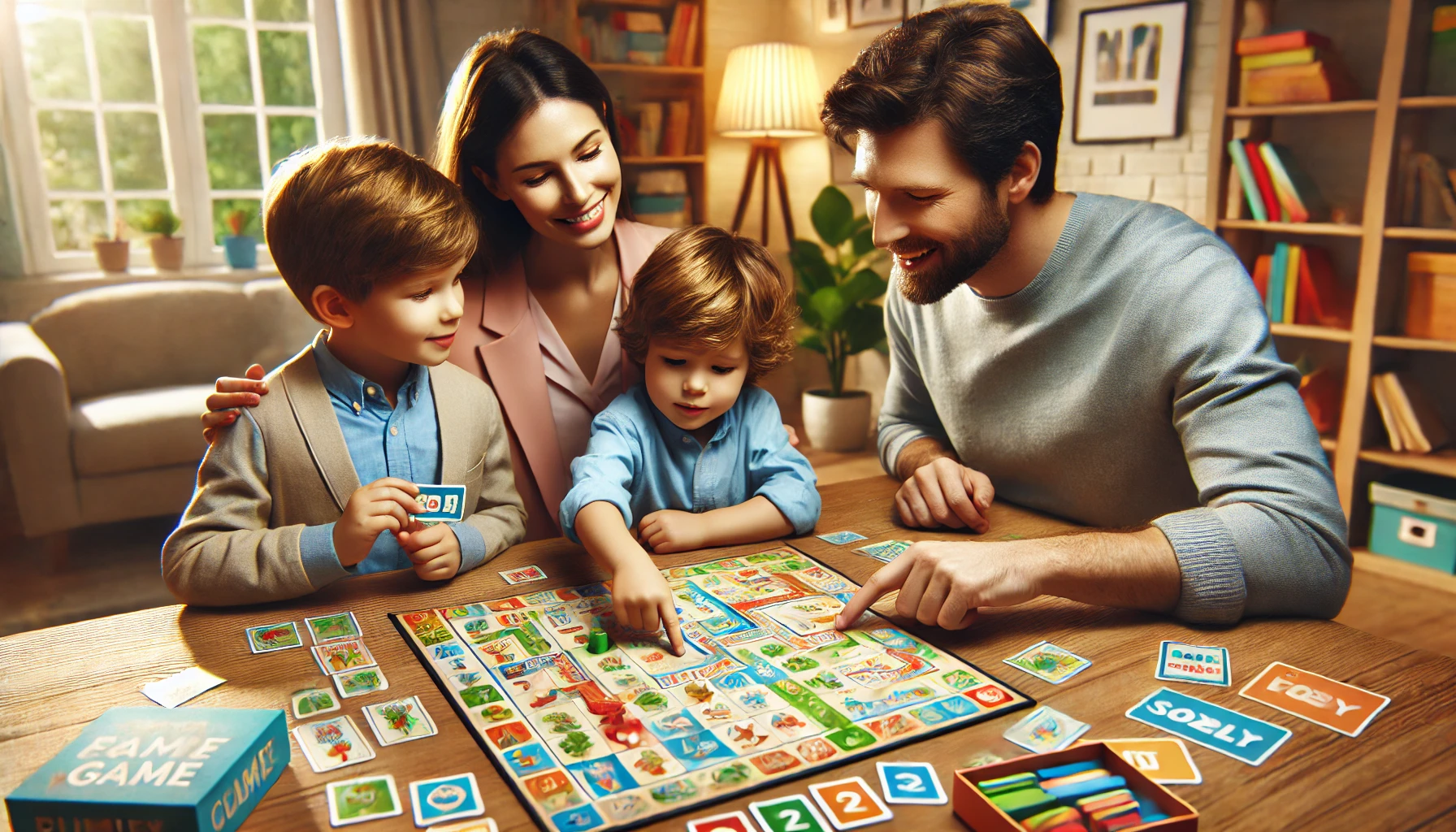Play is one of the most effective ways for children to learn, and educational games play a crucial role in cognitive development. These games help improve problem-solving skills, memory, logical thinking, and creativity while making learning fun. In this article, we will explore different types of educational games that enhance cognitive development in young children.
Why Are Educational Games Important?
Educational games contribute to cognitive development by:
- Enhancing memory and attention span.
- Encouraging problem-solving and critical thinking.
- Developing language and communication skills.
- Improving motor coordination.
- Boosting creativity and imagination.
Now, let’s dive into some of the best educational games for young children!
Games That Boost Memory and Concentration
1. Memory Matching Game
This classic game helps children improve their memory and concentration skills.
How to play:
- Use a set of picture cards with matching pairs.
- Lay them face down and take turns flipping two at a time to find a match.
- The player with the most matched pairs wins.
2. Simon Says
A fun game that enhances listening skills and attention span.
How to play:
- One person gives commands starting with “Simon says…” (e.g., “Simon says touch your nose”).
- Players must only follow the command if it begins with “Simon says.”
- If someone follows a command without “Simon says,” they are out.
Games That Develop Logical Thinking and Problem-Solving Skills
3. Jigsaw Puzzles
Jigsaw puzzles improve problem-solving abilities, patience, and spatial awareness.
How to play:
- Start with simple puzzles and increase difficulty as the child progresses.
- Encourage them to recognize patterns and colors to complete the puzzle.
4. Building Blocks (LEGO or Wooden Blocks)
This game encourages creativity, spatial reasoning, and problem-solving.
How to play:
- Let children build towers, houses, or bridges using blocks.
- Introduce challenges, such as “Can you build a bridge that holds a toy car?”
5. Pattern Recognition Games
These games help children identify sequences and develop logical thinking.
How to play:
- Create a pattern with colored beads or shapes (e.g., red-blue-red-blue).
- Ask the child to continue the sequence.
- Increase the complexity by adding more variations.
Games That Improve Language and Communication Skills
6. Storytelling with Picture Cards
Encourages vocabulary development and creativity.
How to play:
- Lay out picture cards and ask the child to create a story based on them.
- Encourage them to describe characters, actions, and emotions.
7. Alphabet Hunt
A fun way to reinforce letter recognition.
How to play:
- Ask the child to find objects around the house that start with a specific letter (e.g., “Find something that starts with ‘B’”).
- Encourage them to say the word out loud.
8. Rhyming Word Game
This game helps children recognize rhyming words, a fundamental skill in early literacy.
How to play:
- Say a word (e.g., “cat”) and ask the child to come up with a rhyming word (“hat”).
- Take turns and make it more challenging by using longer words.
Games That Stimulate Creativity and Imagination
9. Drawing and Doodling Games
Art activities help children express their thoughts and improve hand-eye coordination.
How to play:
- Give them crayons and paper and ask them to draw their favorite animal or a made-up creature.
- Play “Finish the Drawing,” where one person starts a doodle, and the other completes it.
10. Role-Playing and Pretend Play
Encourages social skills and problem-solving.
How to play:
- Provide props like toy food, doctor kits, or costumes.
- Ask the child to act out different roles, such as a chef or doctor.
Balancing Screen Time with Educational Digital Games
While physical games are beneficial, digital educational games can also support cognitive development. Some excellent apps include:
- Endless Alphabet (teaches vocabulary and spelling).
- PBS Kids Games (variety of educational activities).
- Khan Academy Kids (interactive learning for young children).
- Toca Boca Series (creative and exploratory games).
Tip: Limit screen time and encourage hands-on learning activities for a balanced approach.
Conclusion: Learning Through Play
Educational games are a fantastic way to help children develop cognitive skills while keeping learning fun and engaging. By incorporating memory games, puzzles, storytelling, and creative play into daily routines, children can strengthen essential skills that prepare them for academic success.
Try some of these activities and see how your child learns and grows through play!
